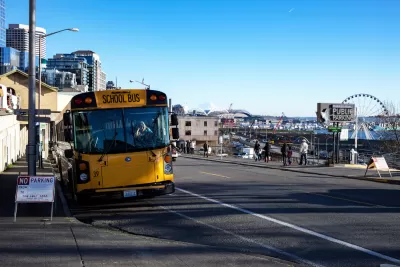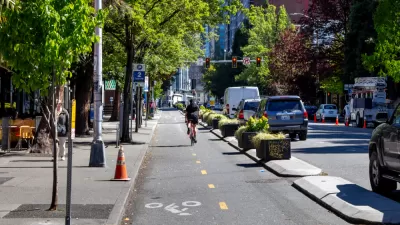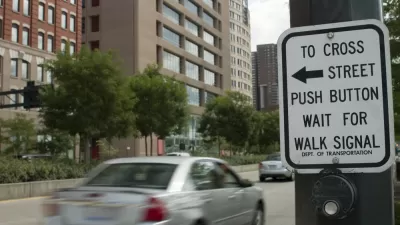Issues about which bus schedules work best for students and families, and how changes to the school bus system should be funded, came to a head in Seattle this week.

Hayat Norimine reports: "After council members Bruce Harrell and Tim Burgess opposed using the Families and Education Levy to fund a new school bus system, council members went back to the drawing board—and came up with using Seattle Department of Transportation funds instead."
The two-tier system would simplify the times for the bus system (8 and 9 am) compared to the current three-tier system (7:55, 8:45, and 9:35 am). The current system has been in place for a year, after school officials switched the schedules to better fit students' sleeping patterns and improve engagement during the school day. "Officials and parents said switching the schedules, again, to a two-tier system would better accommodate working families, especially those with kids in multiple grades," according to Norimine.
The opposition to using funding from the Families and Education Levy came from concern that the levy is intended for programs that close the opportunity gap for children in poverty and people of color.
As of this writing, a decision about funding still needed to be made. [Update: the City Council approved the funding and schedule changes.]
FULL STORY: Council Could Use SDOT Funds for New School Bus System

Planetizen Federal Action Tracker
A weekly monitor of how Trump’s orders and actions are impacting planners and planning in America.

Congressman Proposes Bill to Rename DC Metro “Trump Train”
The Make Autorail Great Again Act would withhold federal funding to the system until the Washington Metropolitan Area Transit Authority (WMATA), rebrands as the Washington Metropolitan Authority for Greater Access (WMAGA).

DARTSpace Platform Streamlines Dallas TOD Application Process
The Dallas transit agency hopes a shorter permitting timeline will boost transit-oriented development around rail stations.

San Francisco's School District Spent $105M To Build Affordable Housing for Teachers — And That's Just the Beginning
SFUSD joins a growing list of school districts using their land holdings to address housing affordability challenges faced by their own employees.

Car-Centric LA Suburb Looks to a Train-Oriented Future
City leaders in Rancho Cucamonga, the future western terminus of the Brightline West rail line to Las Vegas, want to reimagine the city as a transit-oriented, pedestrian-friendly community.

New Alaska Bitcoin Mine Would Burn as Much Energy as the State’s Largest Coal Plant
Fueled by “stranded” natural gas, the startup hopes to become the largest in the US, and to make Alaska an industry center.
Urban Design for Planners 1: Software Tools
This six-course series explores essential urban design concepts using open source software and equips planners with the tools they need to participate fully in the urban design process.
Planning for Universal Design
Learn the tools for implementing Universal Design in planning regulations.
Municipality of Princeton
Roanoke Valley-Alleghany Regional Commission
City of Mt Shasta
City of Camden Redevelopment Agency
City of Astoria
Transportation Research & Education Center (TREC) at Portland State University
US High Speed Rail Association
City of Camden Redevelopment Agency
Municipality of Princeton (NJ)





























